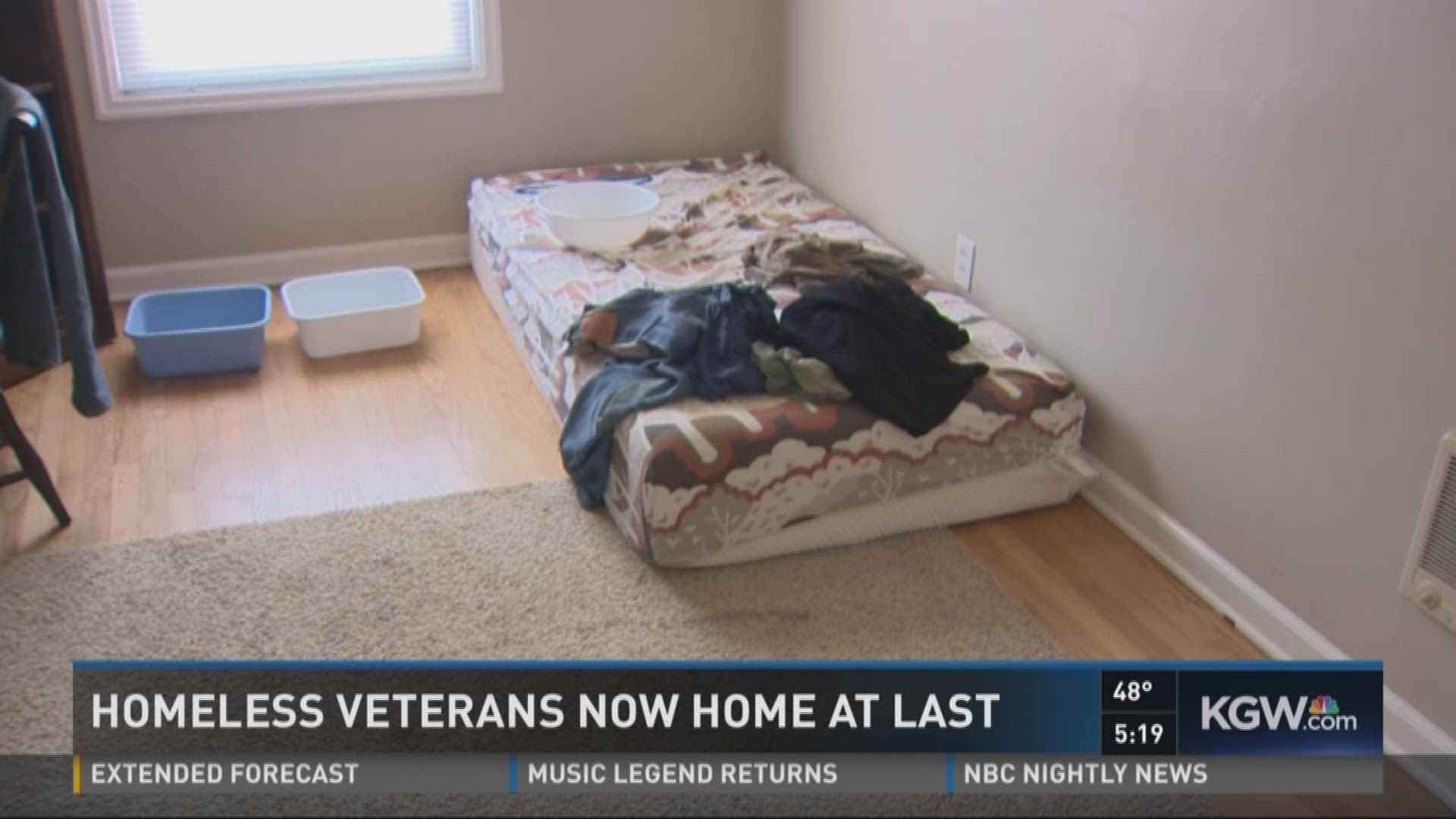PORTLAND, Ore. -- More than 1,200 veterans in Portland will sleep in their own beds tonight. It’s quite an achievement considering less than two years ago, every one of them was homeless.
It’s part a federal initiative and it’s working. In fact, many experts are now hoping the “Veterans Program” can work for the rest of the homeless population in Multnomah County.
Two years ago, when the city and county set a goal to end veteran homelessness, many critics rolled their eyes and asked where the money would come from, and where we could put more than 1,000 homeless veterans living on our streets. Now, two years later, we know some of the money came from the Federal Initiative to end veteran homelessness, some of the money came from Veterans Affair vouchers for housing and some of the money came from the city and county partnership. But importantly, it was all carried out here on a local level.
“Rather than couch surfing and being a pain in everybody's you-know-what, I just said, to heck with it,” said veteran Kevin Blodgett.
Blodgett served our country in the Army in the 1970s and 80s. He grew up in Oregon City and was deployed to Germany. For years, he lived under the Vancouver bridge in North Portland. Blodgett told us, it was a scary time.
“Well, the first time I slept underneath a laurel bush, and this was 5-6 years ago, under a tarp, it’s scary. You hear people, you hear things, you don’t sleep.”
Blodgett wasn’t strung out. He wasn’t hiding from the law, and not in a mental health crisis. He was, however, like a lot of us, a victim of some tough times.
“I got laid off. Some good friends got sick, they had to pretty much go to in-house care, and then there was just, no more unemployment, and couldn't find steady work.”
Marc Jolin, the Director of the Joint Office of Homeless Services, admits the goals were loft and to some, unrealistic.
“I think we embraced it as an opportunity,” he said.
His office held to their goal to end veteran homelessness.
“We estimated that we needed to be able to house upwards of 600 veterans a year,” Jolin said.
Multnomah County Chair Deborah Kafoury said the key to the program is outreach.
“The thought of someone who has put their life on the line for our country sleeping under a bridge is just, it’s wrong,” she said.
Kafoury says the outreach workers established relationships with homeless veterans under the bridge when they met Kevin, and eventually, hundreds of others who are now in permanent housing.
The outreach workers would build trust and eventually offer services. Many of those veterans did not even realize there were a host of services available to them. But Kafoury says getting the services to the veterans was a turning point.
“It doesn't matter if you have all the services in the world, if you’re sitting in your office in downtown Portland waiting for people to come, you're going to be waiting a long time,” said Kafoury.
Erik Curl is one of those outreach workers who has worked with Blodgett. He’s part of the VA’s VASH-HUD program, and he’s been to the bridge that Blodgett once called home.
“It's huge. I mean people are dying and that can’t be overstated," said Curl.
Four homeless people died on Portland streets this winter. And a total of 88 homeless people died on the streets in 2016. Curl says Blodgett is a perfect example of a successful program.
”With the housing-first model, it’s all about getting into housing and then from there establishing other goals,” said Curl.
The day we visited Blodgett in his apartment, he had just received a call-back for a job. He started the following Monday. And he recalls the day when outreach workers came calling under the bridge.
“They said 'are there any other vets around here?' And that's when I raised my hand,” said Blodgett.
It’s a program that’s worked for more than 1,200 formerly homeless veterans now into permanent housing.
“I still pinch myself and people, friends of mine still ask me, are you still there? I say, how many times I gotta tell you? I'm here until the day I die. I'm part of the human race now.”
The challenge going forward is to apply this veterans program to the rest of Portland’s homeless population, and that relies on federal funding.
But the city and county leaders are working to secure federal dollars. The White House has recognized the city and county’s veterans program and sent congratulations on being the first city on the West Coast to end veteran homelessness. But as the work continues, there is a program in place to identify a homeless veteran and provide immediate services to get them back into permanent housing as soon as possible.
Kafoury says they asked area landlords with vacant units to “take a chance” on a veteran. And with that request, they put additional resources in place so those landlords could get relief if they needed it.

